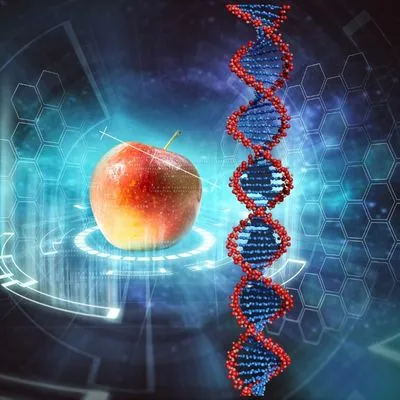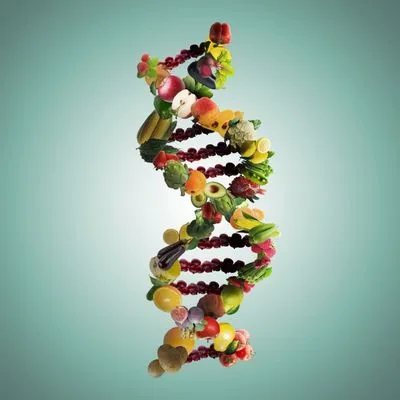This website uses cookies so that we can provide you with the best user experience possible. Cookie information is stored in your browser and performs functions such as recognising you when you return to our website and helping our team to understand which sections of the website you find most interesting and useful.
Have you ever wondered why some individual seems to lose weight easily while following a particular diet type such as Ketogenic or Mediterranean, whereas others find it difficult to lose weight no matter what diet type they follow? It’s not just luck! There are actually several factors at play here. One of the major factors, genes can influence how quickly and efficiently an individual body process food. The Internet is littered with testimonies of individuals who struggled to lose weight in spite of following a healthy diet regime.
There are many different diets for weight loss available out there, but without considering an individual’s specific needs for weight loss it can be tricky to find the right diet and desired weight loss results. A diet based on peer-reviewed scientific studies with a focus on gene markers can help you create a personalized diet for optimal weight loss.
How Gene Variations Impacts Body Weight & Metabolism?
With recent advances in genetics and DNA technology, scientists have reported several genes for effective body weight and fat metabolism. Genes like FTO, MC4R, UCP2 IL6, BDNF, etc. are known to regulate energy homeostasis and appetite. Genetic changes within these genes have shown a strong association with body weight. A recent study highlights that genetic changes can affect an individual’s weight when on low fat high – protein diet intervention. Researchers found that individuals with a positive or normal variant of FTO, MC4R, and UCP2 displayed greater weight loss success on a low-fat-high protein diet when compared to individuals who possess negative variants in these genes.
In another observation that involved the Mediterranean diet’s impact on weight; obese US Caucasians displayed positive weight loss response with Mediterranean diet intervention among individuals carrying positive variants of IL6, BDNF, and CNTF genes. These genes are associated with fat accumulation and high BMI.
Let’s have a sneak peek at the most famous diet type for weight loss.
1. Ketogenic Diet
The ketogenic diet is a very strict low-carb, high-fat eating plan that’s gained popularity in recent years. It involves drastically cutting down on carbs and replacing them with fats – which leads to the efficient burning of body fat for energy production by individual cells.
Cons
As with any other diet, the risks of a long-term ketogenic one should be weighed against its potential benefits. Some negative side effects may include kidney stones and osteoporosis; however, increased blood levels of uric acid can cause gout which is not ideal for those prone to high cholesterol or heart conditions. When individuals go off of the keto diet, they tend to regain the weight. This is surprising because this observation suggests that maybe what an individual does isn’t working and one may need some changes or a better understanding of their nutritional requirements based on individual genetic makeup – which can be determined through DNA tests.
2. Mediterranean Diet
The Mediterranean diet is known for being healthy and nutritious. The key components include plenty of fruits, vegetables (including leafy greens), beans; high fiber bread/grain including barley or wheat. The main focus of this diet is to cut down fat and focus on unsaturated fatty acids like omega 3. This style of eating has shown time after again as being healthy not just for your waistline but also for heart health.
Cons
Eating the Mediterranean diet may lead to:
• Weight gain from eating more than the recommended amount of fat (such as olive oil and nuts)
• Iron deficiency if you don’t eat enough meat.
• Calcium loss from eating fewer dairy products.
3. Paleo Diet
The paleo diet is a core lifestyle that advocates eating whole foods, fruits, and vegetables. It restricts the consumption of processed snacks like candies or pastries as well as sugar-rich beverages such have juice boxes.
Cons
Though the paleo diet is a healthy lifestyle, it limits several nutritious food groups including legumes and whole grains.
With DNA Based Diet Set A Long Term Weight Loss Goal
The DNA test for weight loss is a recent development in the area of personalized wellness. A DNA test can help an individual to understand ways their DNA influences dietary needs. DNA test identifies an individual’s genetic risk of access weight gain, hereditary risk of obesity, taste preferences, and food sensitivities to suggest optimal diet type for weight loss. More and more dieticians, personal trainers, and doctors are now relying on DNA tests to design diet plans and fitness regimes. DNA-based diet connects an individual’s metabolism with food, and with personalized diet recommendations, one can achieve long-term goals for successful & long-term weight loss.
NutriLIFE: Your Very Own Personalized Diet Planner
The NutriLIFE DNA Test analyzes your individual genetic makeup to provide you with information about which nutrients your body needs, what food type one needs to avoid, and how to optimize your health. This information can then be used to tailor a personalized diet plan that is specifically designed for your body, in order to help you reach optimal health.
If you want to know more about the genetic impact on diet and weight loss visit NutriLIFE.








